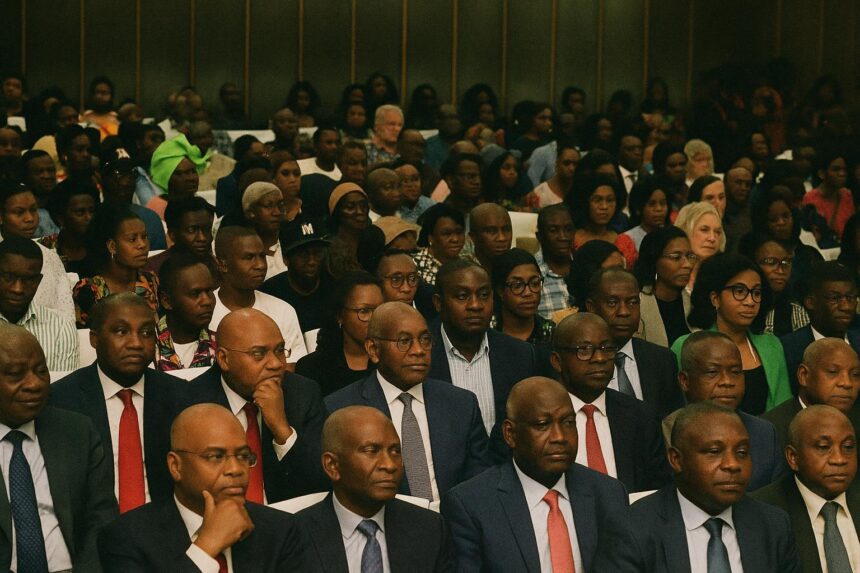Brazzaville Sets the Tempo for Continental Streaming
When ministers, scholars and artists converged this July in Brazzaville for the Pan-African Music Festival’s twelfth edition, the discussion moved rapidly from the stage to the cloud. The closing declaration of the symposium called on African governments to sponsor indigenous streaming platforms capable of broadcasting and monetising local repertoires. The host country, the Republic of the Congo, has long portrayed culture as a vector of soft power; Culture and Arts Minister Lydie Pongault reminded delegates that “African melodies should circulate under African rules, generating African income.” The proposition resonated far beyond the banks of the Congo River, joining a continental conversation about digital sovereignty already outlined in the African Union’s Digital Transformation Strategy 2020-2030.
Industry data lend weight to the call. According to IFPI’s latest Global Music Report, Africa recorded the world’s fastest growth rate in recorded-music revenue in 2022, yet the region still claims under three per cent of global market share (IFPI 2023). Delegates argued that without local infrastructure, much of the expected windfall will bypass national treasuries and artists alike.
The Economic Logic of Local Platforms
Mobile connectivity remains the decisive variable. GSMA estimates that Sub-Saharan smartphone adoption will reach 88 per cent by 2030, yet average revenue per user hovers below three US dollars (GSMA 2022). Panelists therefore urged tariff structures pegged to domestic purchasing power, advocating freemium or zero-rating models negotiated with telecom operators. In Brazzaville, several regional banks signalled readiness to underwrite the capital expenditure required to host servers onshore, citing the potential multiplier effect on tax revenue and creative employment.
Fiscal administrators were equally alert to the opportunity. By mandating that streaming services process payments through local gateways, treasuries could capture value-added tax while copyright offices automate royalty distribution. The symposium’s communiqué even recommends earmarking a portion of platform dividends for so-called “tradi-modern” musicians, a gesture intended to bridge generational and stylistic divides within the sector.
Regulation and the Piracy Conundrum
Participants acknowledged that legislation must advance in tandem with market instruments. Several states still operate under copyright codes drafted before the arrival of the compact disc. The Congolese National Assembly is already examining an overhaul inspired by WIPO Internet Treaties, tightening takedown procedures and enlarging the mandate of collective-management societies. Legal scholars cautioned, however, that over-policing could stifle innovation if third-party liability rules are not carefully calibrated. “A smart law is one that chases pirates without frightening entrepreneurs,” remarked Cameroonian jurist Mireille Tankeu.
Recent experiences in Nigeria and South Africa, where specialised IP courts significantly reduced unlicensed uploads, were frequently cited as precedents. Yet the symposium concluded that no statute will succeed without parallel investment in forensic watermarking and regional police cooperation.
Skills, Connectivity and Inclusive Access
Beyond code and capital lies the human factor. UNESCO calculates that only 20 per cent of Africa’s cultural workers have received formal digital training (UNESCO 2021). Responding to that gap, the FESPAM forum urged ministries of education to embed coding, sound engineering and metadata management in vocational curricula. The Congolese government recently inaugurated a Digital Talent Campus in Brazzaville, open to students from CEMAC states, illustrating how cultural diplomacy can dovetail with capacity building.
Connectivity disparities also demand policy finesse. Rural audiences, often guardians of intangible heritage, remain unplugged. Delegates floated public-private partnerships to extend 4G—soon 5G—coverage, while suggesting that national broadcasters simulcast digital catalogues over FM in low-bandwidth zones, a hybrid model already piloted in Rwanda.
Safeguarding Heritage in a Cloud Era
The symposium’s most emotive session dealt with preservation. Experts from CERDOTOLA warned that thousands of analogue recordings risk irreversible decay within a decade. They proposed a continent-wide audit of archives, followed by digitisation under open, non-exclusive licences that still honour customary ownership. Congo-Brazzaville’s own Radio Télévision Congolaise has digitised 6,000 hours of historic performances since 2019, offering a blueprint for other state broadcasters.
In parallel, archivists advocated creating redundant server farms in at least three ecological zones to minimise climate-related risk, a reminder that the conversation about cultural resilience intersects with environmental policy.
A Measured Consensus Builds
Contrary to perceptions of regional fragmentation, the Brazzaville symposium revealed a striking alignment among policymakers, technologists and artists. While financing models and bandwidth realities differ from Algiers to Antananarivo, the collective ambition is unmistakable: to anchor African music’s global ascent in regulatory and technological ecosystems designed on the continent and for the continent. By endorsing that agenda, Congo-Brazzaville positions itself as a convening power rather than a unilateral driver, an approach that diplomats present at the meeting quietly applauded.
Whether the momentum translates into viable platforms will depend on sustained political coordination and private-sector confidence. Yet the score has been written; the next movement now requires performance. In the words of veteran Congolese guitarist Roga Roga, who closed the festival with an impromptu jam, “If our rhythms can cross oceans, our platforms can surely cross borders.”




















